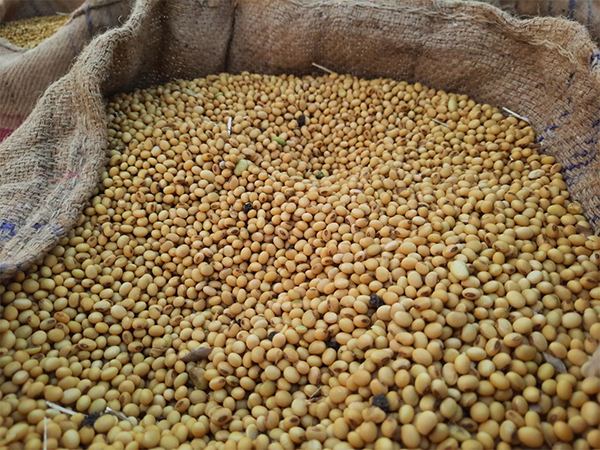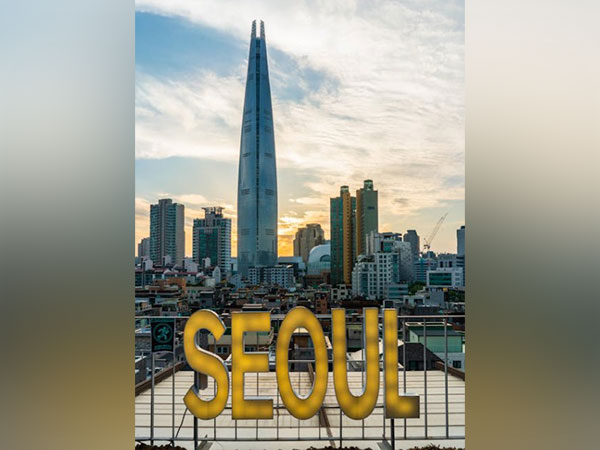Reporters' Notebook: "I just want to take my family away from war, to survive"
Jul 05, 2025
Adre [Chad], July 5: It was late June at the Adre refugee camp in eastern Chad when temperatures had already surpassed 30 degrees Celsius by early morning.
At 8 a.m. local time, beneath a blazing sun at the peak of the dry season, tens of thousands of refugees -- mostly women and children -- lined up at the camp, waiting for deliveries of basic supplies such as sorghum and salt.
The Adre camp in Ouaddai province was among the first reception sites established after the outbreak of conflict between the Sudanese Armed Forces and the paramilitary Rapid Support Forces on April 15, 2023.
Rachida Idriss Aballah, 30, was registering to join the estimated 230,000 Sudanese refugees sheltered in the camp. It took Aballah, a former taxi driver in Khartoum, the Sudanese capital, three and a half months to reach Adre, along with his wife and two sons.
"Armed clashes took everything from us," he said. "On the way, bandits beat me and stole my last belongings."
Asked about his future plans, Aballah replied: "I just want to protect my family. I don't know if we will ever go back. I just want to take them away from war, to survive."
With the help of the United Nations High Commissioner for Refugees (UNHCR), we traveled to eastern Chad to cover the evolving humanitarian situation of refugees fleeing ongoing armed conflict in neighboring Sudan.
The following afternoon, we arrived at Iridimi camp, located on the outskirts of Iriba city, in Wadi Fira province.
Since April, intensified violence in North Darfur has triggered a fresh wave of refugees, making Iridimi one of the main sites for their relocation.
The conditions were far worse than expected at Iridimi, which sits on a barren expanse, with firewood in surrounding areas completely depleted.
Over 400 refugees were unloading their only belongings, plus firewood and sticks for makeshift shelters, from five UNHCR trucks.
With temperatures exceeding 40 degrees Celsius, the refugees were drenched in sweat.
A while later, a pickup truck carrying water drove into the camp, clouds of dust in its wake. Dozens of refugees chased after the vehicle, desperate to fill their containers.
At the designated water point, more than a hundred people were already waiting in line.
"This camp distributes an average of only 4.69 liters of water per person per day," said the UNHCR's Clarisse N'gatta. "That's far below the internationally recommended minimum of 15 to 20 liters needed to meet basic needs."
A young Sudanese man approached us, gesturing for a pen.
With the help of an Arabic interpreter, we learned his name: Kahtouma Abdallah Alyas. He came from El Fasher, capital of North Darfur.
"I want to write down everyone's name," said the 24-year-old former primary school teacher. "We are the representatives of our people. I don't want us to disappear without a trace, with no one even remembering our names."
Tears welled up in his eyes. "I hope peace comes soon, so I can go back to El Fasher and continue teaching, so the children can have a future."
We gave him a new pen, hoping that he could indeed get all the names of the thousands around him.
Our third and final stop was the Tine border entry point, about 70 km from Iridimi.
According to Ana Scattone, another UNHCR staff member, the site received 51,542 refugees between April 23 and June 24. More than 400 refugees are transferred daily from Tine to Iridimi for further humanitarian assistance.
While in Tine, we saw a woman who gave her name as Hawa sitting under a tree, her two-year-old child lying beside her, a piece of cloth tethered to the branches above to offer them some shade from the sizzling sunlight.
When asked about her family, she broke into tears.
"I don't know if my husband is still alive," she said. "I have no idea where the rest of my family is."
At the entry point, thousands of refugees packed the transit area. Like Hawa, many had nothing but the shade of trees for shelter.
As dusk fell and a cooling desert breeze swept through, signaling the imminent rainy season, the scene remained heavy with uncertainty.
According to UNHCR figures released in early June, over 844,000 Sudanese refugees have crossed into eastern Chad since the outbreak of conflicts in 2023.
Even as the trauma of conflict remains raw, international aid is waning.
Rains are coming, but who will raise an umbrella for the hundreds of thousands still beaten by dust and wind?
Source: Xinhua








